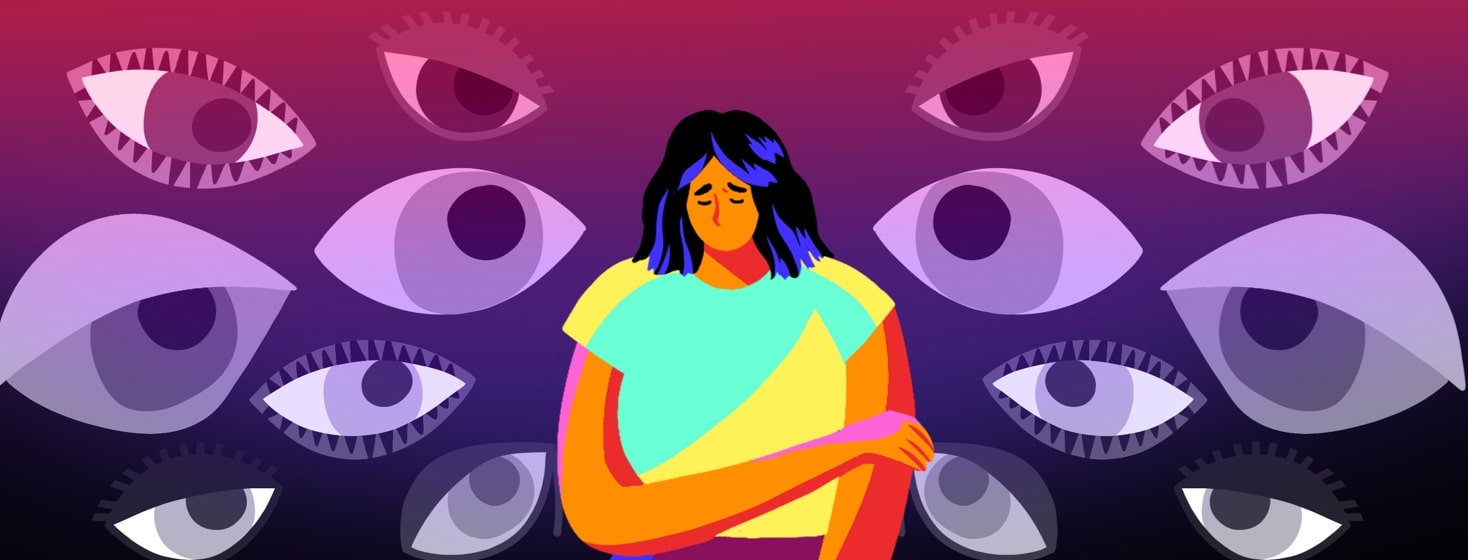Postpartum Pressure: Society's "Standards" (and Stigmas)
Postpartum is hard. Postpartum depression (PPD) makes it harder. Add in the societal stigma mothers face with the diagnosis, and existence becomes even more difficult. Of all the people in society, it often feels like mothers are the most commonly judged and deemed to be lacking or unfit. We're supposed to have everything together and figured out because we’re raising the next generation.
The truth is... We don't. Yet, we look at ourselves in the mirror and tell ourselves to fake it till we make it. That we've got to act as if everything is perfect and eventually our lives will follow suit.
Stigmas and expectations on mothers
I would do this and then later find myself having another crying jag. As a mother of 5, I have dealt with many aspects of postpartum life, including PPD. I wasn't even aware of postpartum depression after I had my first 2 children.
The guilt and shame that I felt because I thought I was failing at my job of mother just continued and continued, no matter how much I told myself that it was all normal and okay. I thought this was how I was supposed to feel now as a mother.
The comparison game
I continually compared myself to other mothers who I was viewing from the outside and letting myself listen to those around me who seemed to have it all figured out. Society tells us to be a certain type of parent, and if we don't fit into whatever mold that society deems fitting, then we as mothers feel the guilt for not being enough of a mom.
This or That
Did you feel yourself comparing yourself to others today?
Recognizing postpartum depression symptoms
It wasn't until many years after I had my oldest 2 children that I realized that what I struggled through on my own was postpartum depression. I never spoke to anyone about my feelings of emptiness, guilt, exhaustion, sadness, inequity, etc., because I felt like I was supposed to be able to handle things on my own.
I was a mother now. I was bringing up and teaching the next generation how to live, to exist. No one was supposed to know that I wasn't able to do that without help.
Stigma keeps us from reaching out for help
The societal stigma against postpartum depression tends to make it very difficult for mothers to feel like they can reach out for the help and community they need to find balance and acceptance. We worry about negative judgement because people will often assume our PPD means that we don't care about or love our children.
I know that, personally, I always worried that people would make the assumption that I couldn't take care of my children and would try to find some reason to take them away from me. I love my children so much that it hurts sometimes, and the thought that someone else could believe that I didn't love them affected me greatly.
Then my child experienced mental health stigma
It wasn't until my second born, now 15 years old, began to have his own struggles with mental health in elementary school that I really realized that the stigma against my mental health battle wouldn't go away unless we started talking about our personal struggles out loud. His battles with depression and anxiety at such a young age opened a door for the societal stigma against mental health to reach him.
I didn't want my son to be stigmatized so I became his voice and advocate, thereby teaching him to do the same for himself. To not allow society to create feelings of shame for his diagnoses.
Speaking openly about postpartum depression
So, when I became pregnant with my third child, I talked openly to my doctors, family and friends. I voiced my fears, worries and insecurities. I openly spoke about my PPD diagnosis on social media. I never hid the epic highs or the epic lows of my postpartum journey.
I had many tell me that I shouldn't be sharing these types of things because, "My goodness, what might others think?!" Yet, I had a few people, shyly and off to the side, tell me, "Thank you for sharing." Because it helped them realize they weren't alone in their feelings and that through help, things could get better.
Moms helping moms
My voice had been the breath of fresh air they needed in order to keep going. For me, helping the few means more than the judgement of the many. You will find me being a loud voice in the fight for acceptance of those of us who are diagnosed with PPD for the rest of my days because the stigma against us still exists and until it doesn't, I won't stop advocating for myself or for you.
